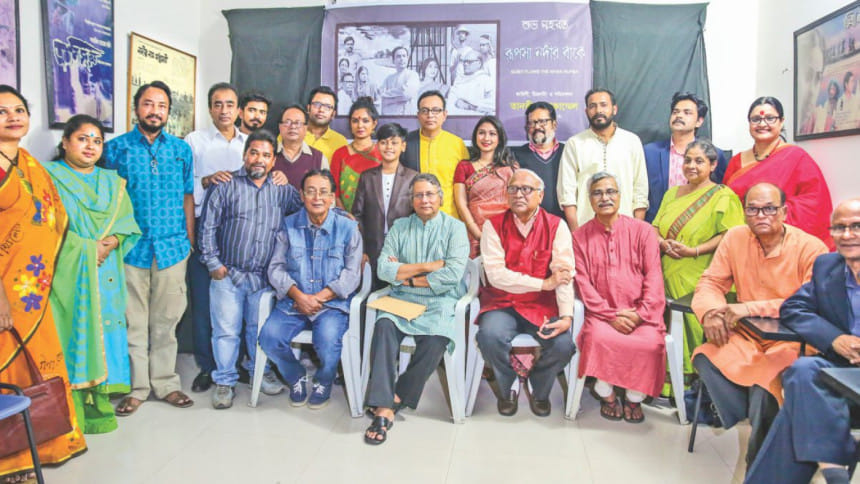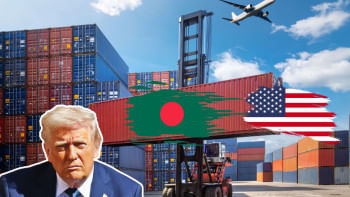Tanvir Mokammel announces new film

Eminent Bangladeshi filmmaker Tanvir Mokammel is all set to begin work on a historical feature film titled “Rupsa Nodi'r BaNke” (English title “Quiet Flows the River Rupsa”). The filmmaker announced his latest big screen project in a press conference at the Bangladesh Film Institute on Tuesday.
The film, which chronicles the life of a leftist politician who was killed by Razakars during the 1971 Liberation War, will begin principal photography later this month in Khulna, and will also shoot in Dhaka Central Jail, Tangail and Comilla. The film is expected to complete production in July and is slated for a December 2018 release, Mokammel informed at the press conference.
The film, which has a government grant of 50,00,000 taka, is also running a crowd-funding campaign to raise another 46,00,000 taka to fulfill its budget. The two-hour film has cast Zahid Hossain Shovon, Ramendu Mazumdar, Khairul Alam Sabuj, Ataur Rahman, Chitralekha Guha, Keramat Mowla, Jhuna Chowdhury, Rajib Salehin, Naziba Basher, Masum Basher, Bijon Sarkar, Baishakhi Ghosh and others in its various roles.
Uttam Guha will be the chief assistant director and art director for the project, while Syed Sabab Ali Arzu and Rana Masud are assistant directors. Arzu will also direct music for it, while Mahfuzur Rahman Khan will serve as DOP, and Chitralekha Guha as casting and costume director. Adnan Ahmed Imtiaz will serve as executive producer for the film, which is being produced under the banner of Kino-Eye Films.
Tanvir Mokammel, an Ekushey Padak laureate with nine National Film Awards to his credit, is equally prolific as a feature and documentary filmmaker and has a penchant for historical films. His most notable works include features “Nodi'r Naam Modhumoti” (1995), “Chitra Nodi'r Paare” (1999), “Lalsalu” (2001), “Lalon” (2004), “Rabeya” (2008) and “Jibondhuli” (2014), while some of his most remarkable documentaries include “Smriti Ekattor” (1991), “Karnaphuli'r Kanna” (2005), “1971” (2011) and his most latest work “Seemantorekha” (2017).

 For all latest news, follow The Daily Star's Google News channel.
For all latest news, follow The Daily Star's Google News channel. 







Comments